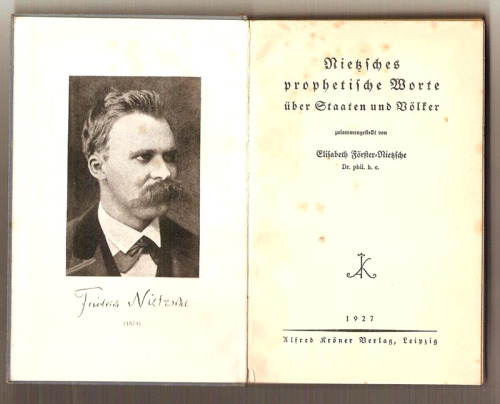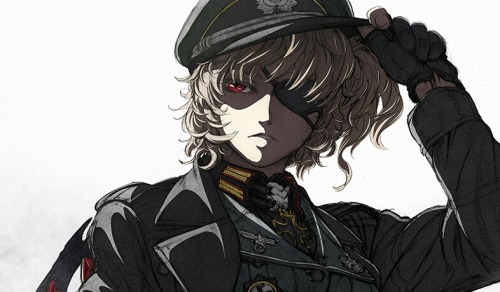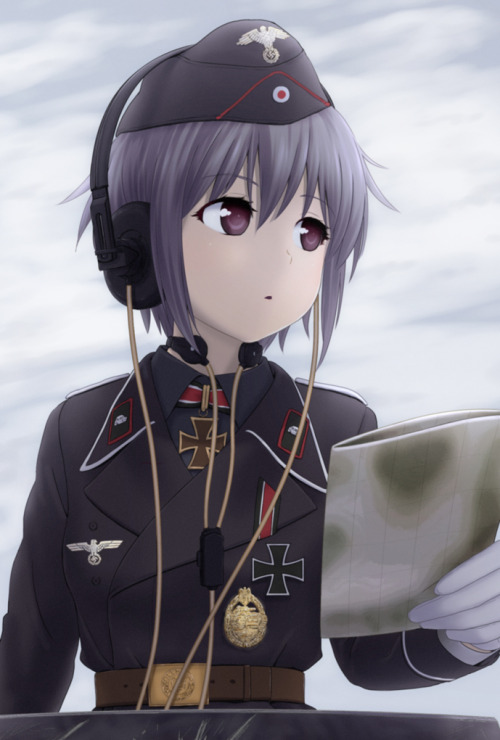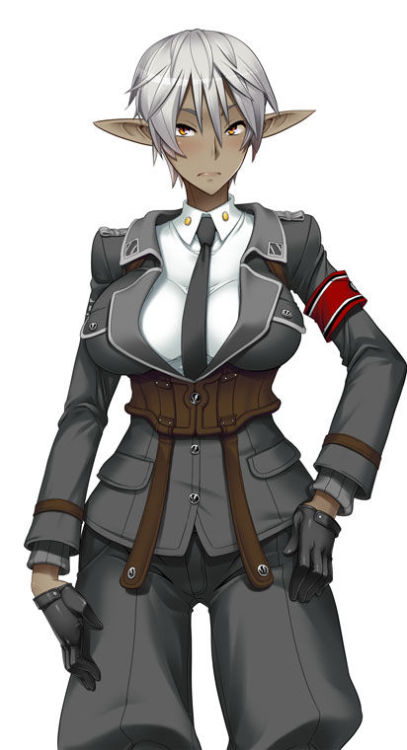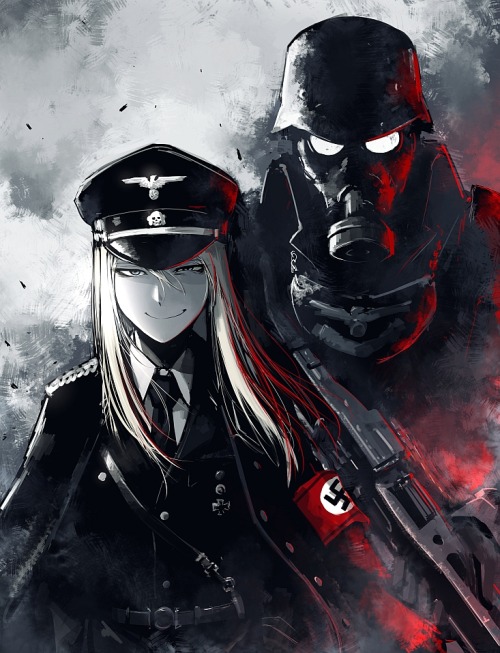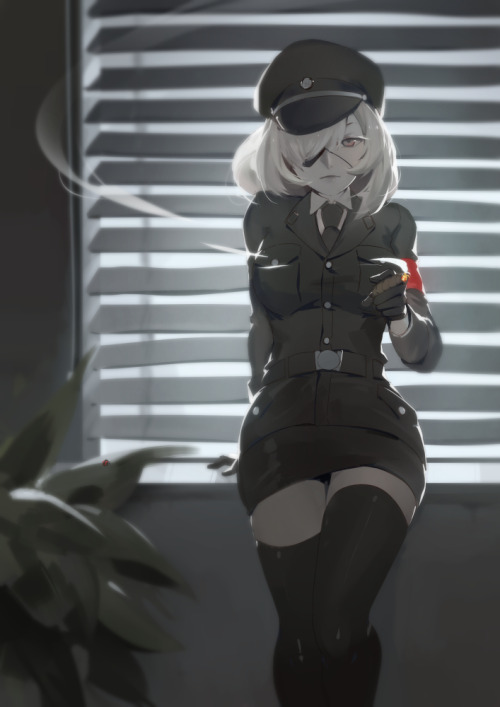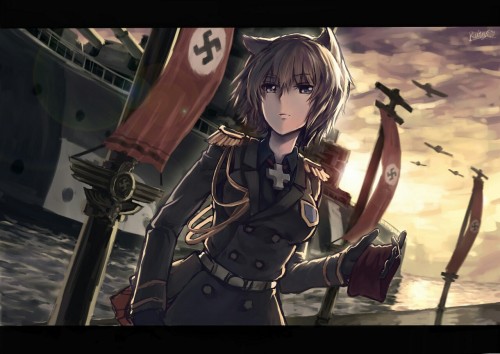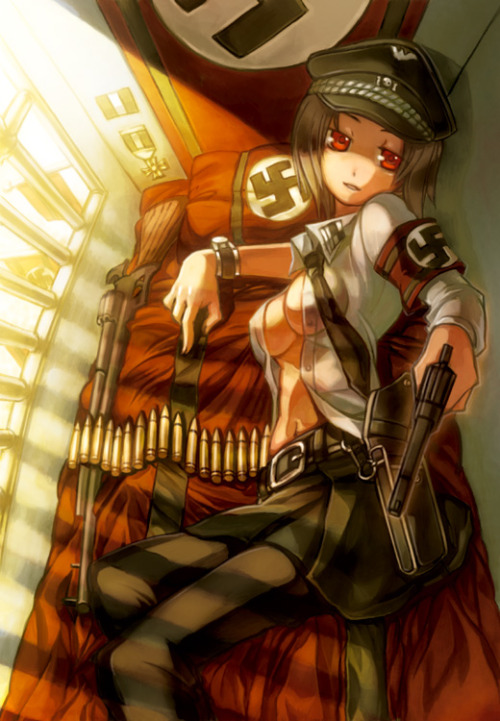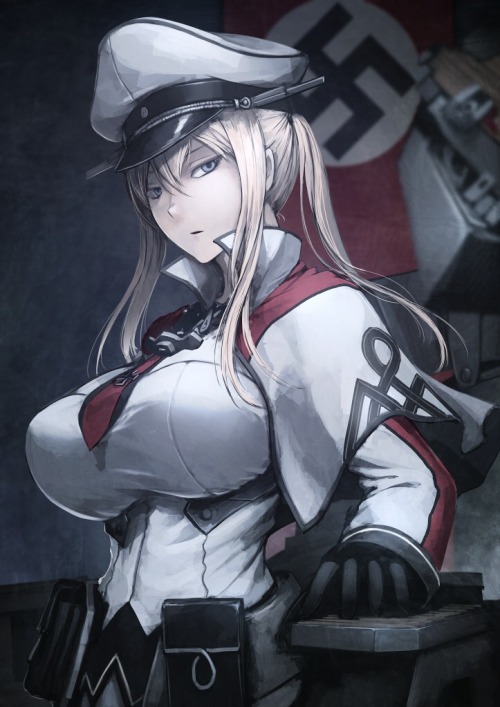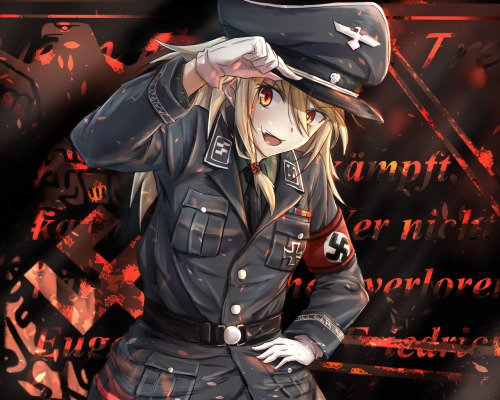#national-socialism
“Decadence is the abandonment of standards and a levelling-down. It is the pursuit of the common in place of the striving to reach a higher level. Decadence is the wallowing in the transient. But perhaps most of all, on the individual level, decadence is lack of real character. Decadence elevates cleverness, ‘education’ and intellectual pretension over and above experience, courage and heroism. Decadence elevates self-indulgence above self-discipline. Decadence denigrates duty, honour and loyalty. Decadence affirms those things which those of weak character espouse - pacifism, peace, equality, 'harmony’, inter-racial 'love’. Decadence is materialistic - it mocks idealism, the numinous, and the profound, and in place of the aesthetic of beauty, it champions the ugly and the banal. Decadence is, fundamentally, a manifestation of what is weak, shallow, pretentious and vain. It is the philosophy, and the aesthetics, of the coward.”
David W Myatt
Post link

Ever since his capture in the early 1960s, Otto Adolf Eichmann, who was in charge of Jewish affairs during the Third Reich, has been the subject of unsettled and passionate controversy — centered, above all, on Hannah Arendt’s portrait of him at his 1961 trial. Her “Eichmann in Jerusalem” in many ways mirrored Eichmann’s own self-presentation. She insisted that, contrary to expectations, the man in the dock was not some kind of demonic Nazi sadist but a thoughtless, relatively anonymous, nonideological bureaucrat dutifully executing orders for the emigration, deportation and murder of European Jewry. Arendt’s insights — that genocide and bureaucratic banality are not necessarily opposed, that fanatical anti-Semitism (or for that matter, any ideological predisposition) is not a sufficient precondition for mass murder — remain pertinent.
Yet as Bettina Stangneth demonstrates in “Eichmann Before Jerusalem,” her critical — albeit respectful — dialogue with Arendt, these insights most certainly do not apply to Eichmann himself. Throughout his post-1945 exile he remained a passionate, ideologically convinced National Socialist. He proudly signed photos with the title “Adolf Eichmann — SS-Obersturmbannführer (retired)” and, quite unlike a plodding functionary, boasted of his “creative” work. At one point he described the mass deportation of more than 400,000 Hungarian Jews as his innovative masterpiece: “It was actually an achievement that was never matched before or since.”
The enduring image of Eichmann as faceless and order-obeying, Stangneth argues, is the result of his uncanny ability to tailor his narrative to the desires and fantasies of his listeners. Arendt was not the only one to be taken in, and Stangneth, an independent philosopher living in Hamburg, is able to present a more rounded picture on the basis of previously unmined archival sources, particularly Eichmann’s own compulsive notes and jottings made in exile, in conjunction with the elusive series of taped conversations known as the Sassen interviews. These were exchanges organized in Argentina by the Dutch Nazi journalist Wilhelm Sassen and attended by a small group of old Nazis and their sympathizers
From a New York Times article by Steven Aschheim
Here’s a little curiosity from my beautiful Nietzsche collection: It is a small book called “Nietzsche’s prophetic words about states and people”, edited by Elisabeth Förster-Nietzsche - Friedrich’s evil sister. It therefore consists of passages that she believed would “please the man of the party when he finds remarks kindred to his heart”, as she puts it in her creepy preface. In fact, Elisabeth Förster-Nietzsche was utterly confused by her brother’s works and hired Rudolf Steiner to explain it to her. Steiner very quickly abandoned the attempt, finding it impossible to teach her anything about Philosophy
Post link
It is generally thought that National Socialism stands only for brutishness and terror. But this is not true. National Socialism—or, more broadly, fascism—also stands for an ideal, and one that is also persistent today, under other banners: the ideal of life as art, the cult of beauty, the fetishism of courage, the dissolution of alienation in ecstatic feelings of community; the repudiation of the intellect; the family of man (under the parenthood of leaders).
— Susan Sontag, Fascinating Fascism (1975)
War Girls: WWII (SS-Scharführer or Higher) Cuties
•World War Two
•Non-Commissioned Officer Grades or Higher
•Desktop
Post link
Two Against the World by Ernst Ludwig Kirchner, 1924.
Dystopian authors such as Aldous Huxley and George Orwell proposed that the greatest threat to a totalitarian system would be romantic love.
In Brave New World, children are inculcated with the belief that all bodies belong to everyone. Sex is not allowed to be a form of intimacy. Instead, it serves as a means for reinforcing the prevailing social order.
For the same reason, sex is repressed in Orwell’s 1984: relationships create private loyalties, which ferment rebellion and weaken loyalties to the state.
Conflict frequently turns up as a theme in Kirchner’s paintings. Sometimes he depicts inner struggles while, in other works, his interest is a perceived battle between personal freedom and a staid, suffocating environment.
For Kirchner, there is already a totalitarianism of conformity lurking underneath the veneer of western civilization. Creators and lovers have to be against the world to survive in this hostile society.
How would Kirchner fit in a state controlled by national socialists? Well, you can guess the answer.
In 1933, the Nazis branded his art as degenerate. In 1937, they destroyed or sold off 600 his paintings.
In 1938, Kirchner died in front of his house from a self-inflicted gunshot wound. He was 58.
Post link



